Sand blasting is probably the most common type of abrasive blasting, but there are several others ways that abrasive blasting can be accomplished. Some businesses offer abrasive blasting as a service to industrial customers, while other manufacturers sell abrasive blasting equipment directly to companies in restoration and repair industries. Read More…
Our sandblast equipment is designed to handle a wide variety of applications and we use manufacturing methods that guarantee these machines will stand the test of time.

We have decades of experience in the finishing industry and we specialize in aqueous washing, abrasive blasting, vibratory finishing, polishing and buffing.
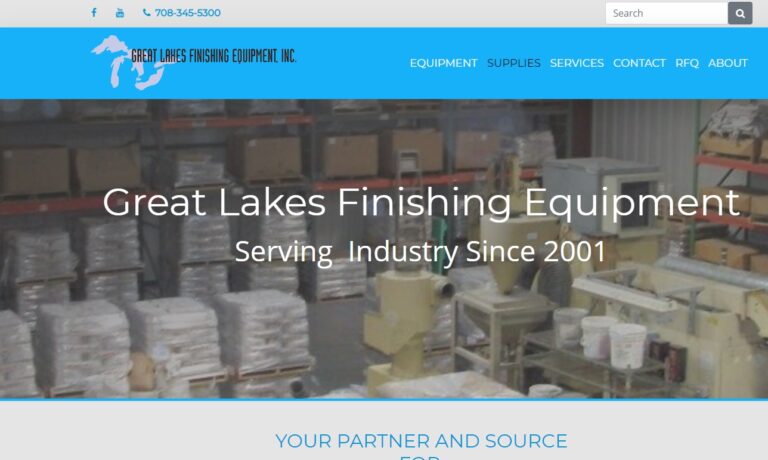
With over 100 years of combined dust-collecting experience, Rapid Prep LLC is a leader in the dust-collecting and sandblast equipment industry. We offer a wide range of products to meet the needs of our customers, with customization options available. Our team is dedicated to advancing our company and raising industry standards.
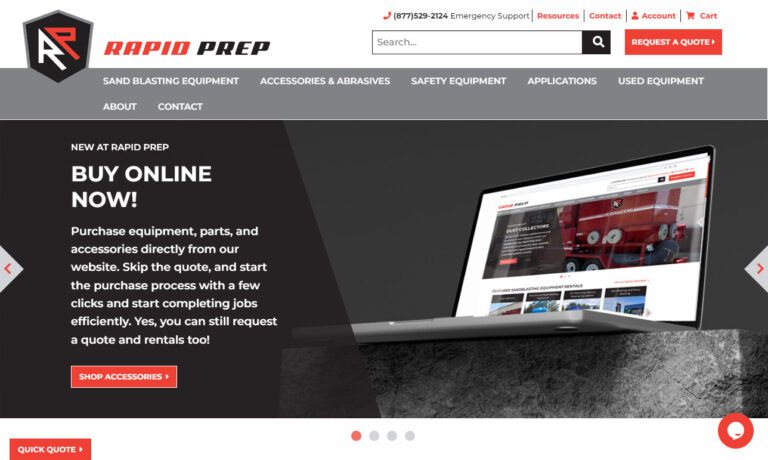
Cardinal Parts & Equipment LLC specializes in designing high-quality abrasive blasting equipment. The equipment they offer includes tumble blast equipment, rim blast equipment, dust collectors, and hanger blast equipment. They also sell abrasives like steel shot, stainless steel shot, and cast zinc shot. Their services include service calls, inspections, financing, and equipment rebuilding....
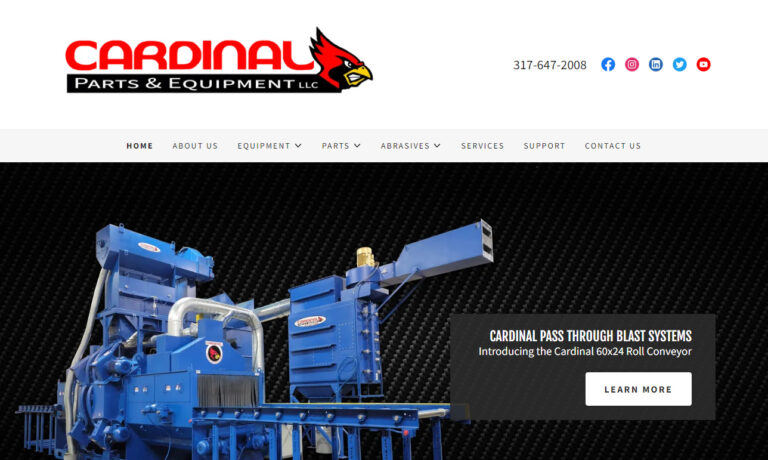
More Abrasive Blasting Equipment Manufacturers
In sandblasting, a high pressure air blast system forces sand through a nozzle that is pointed at the part being treated. The force of the sand hitting the metal causes rapid abrasion that smooths the surface out, restoring it to its original quality. Sandblasting is used on vehicle restoration projects to treat car parts that have been disassembled before they are coated with a fresh coat of paint. In some cases, this is the only way to return the appearance of a car to its original state.
Other types of abrasive blasting equipment use hydro-blasting, wheel-blasting, dry-ice blasting and automated blasting. These are all good for abrasion, but some may be optimal for particular applications. Hydro-blasting, for example, uses highly pressurized water to blast surfaces like the exterior walls of buildings. Dry-ice blasting uses air and dry-ice under pressure that are ejected from a nozzle. This effectively removes surface contaminants because of the force of the carbon dioxide.
Abrasive blasting equipment can be manufactured in portable and stationary sizes. Portable systems are usually powered by a diesel air compressor. The compressor fills a blast pot with pressurized air. This pot is where the air interacts with the abrasive materials and then travels through a hose to the nozzle where it is ejected.
A blast cabinet is a stationary blasting unit where parts are placed in tightly sealed enclosure. A foot pedal turns the blaster on and off and the operator can see the object through a small viewing window and move it by inserting his or her hands into rubber gloves that are built into the machine. A blast room is like a larger version of a blast cabinet where the operator works inside while wearing protective equipment.


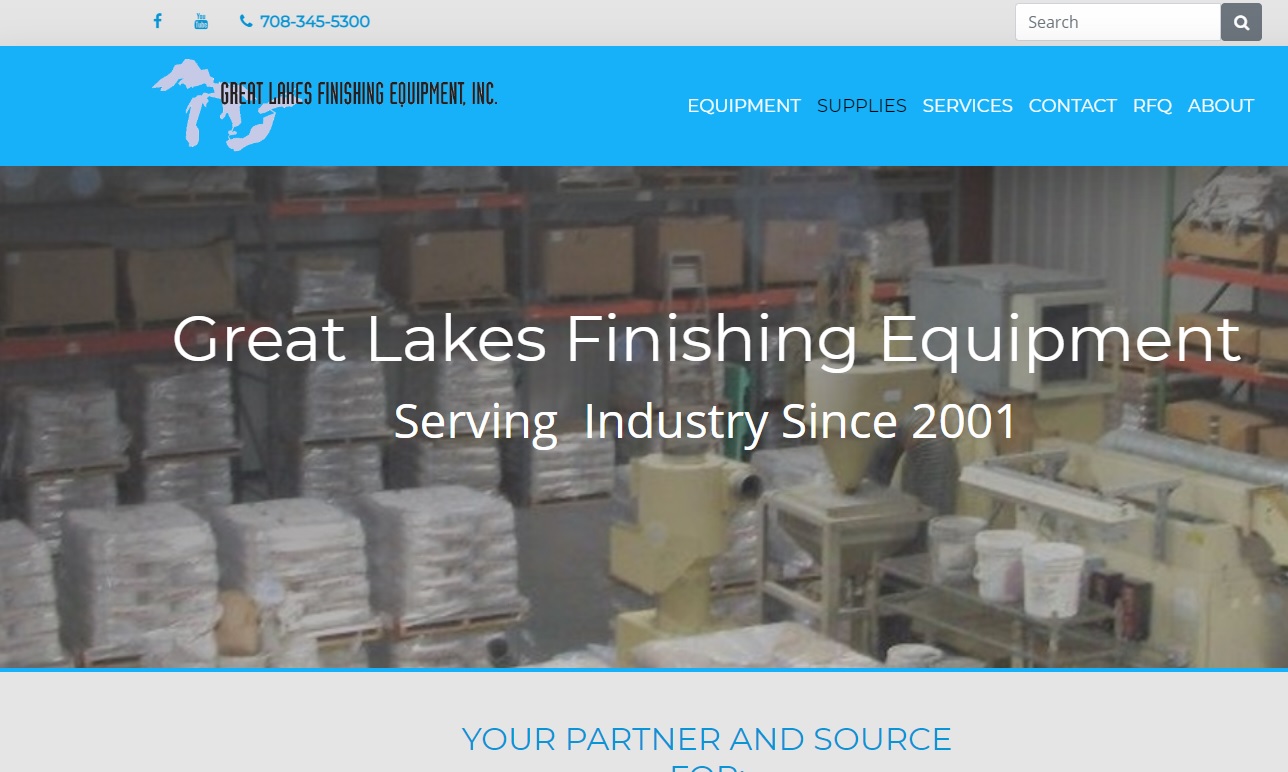
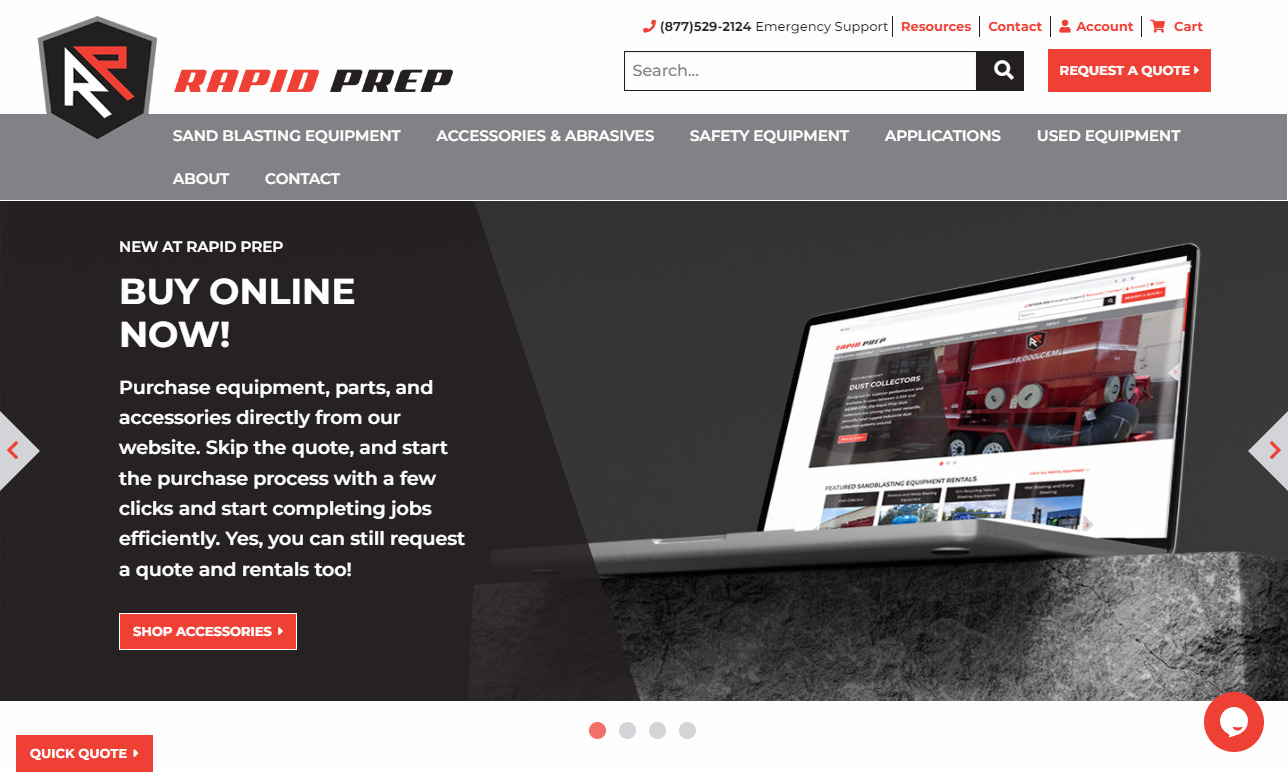
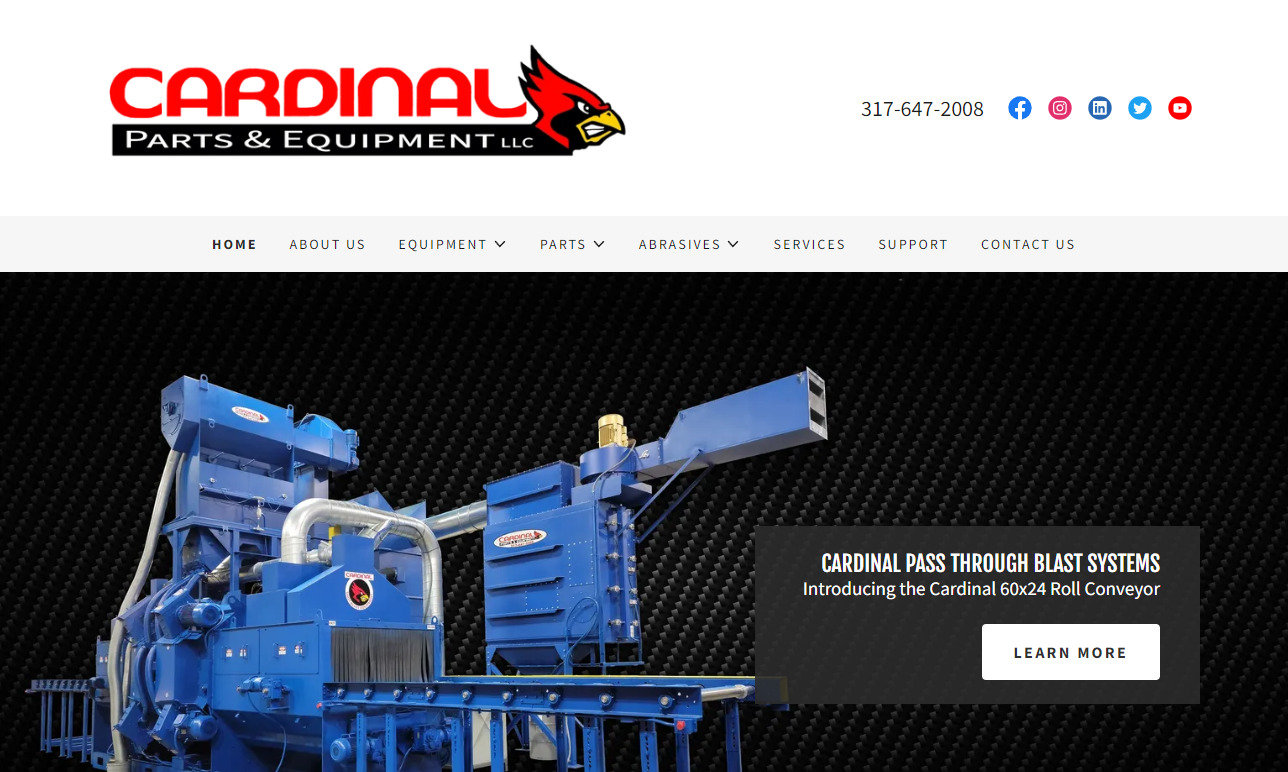
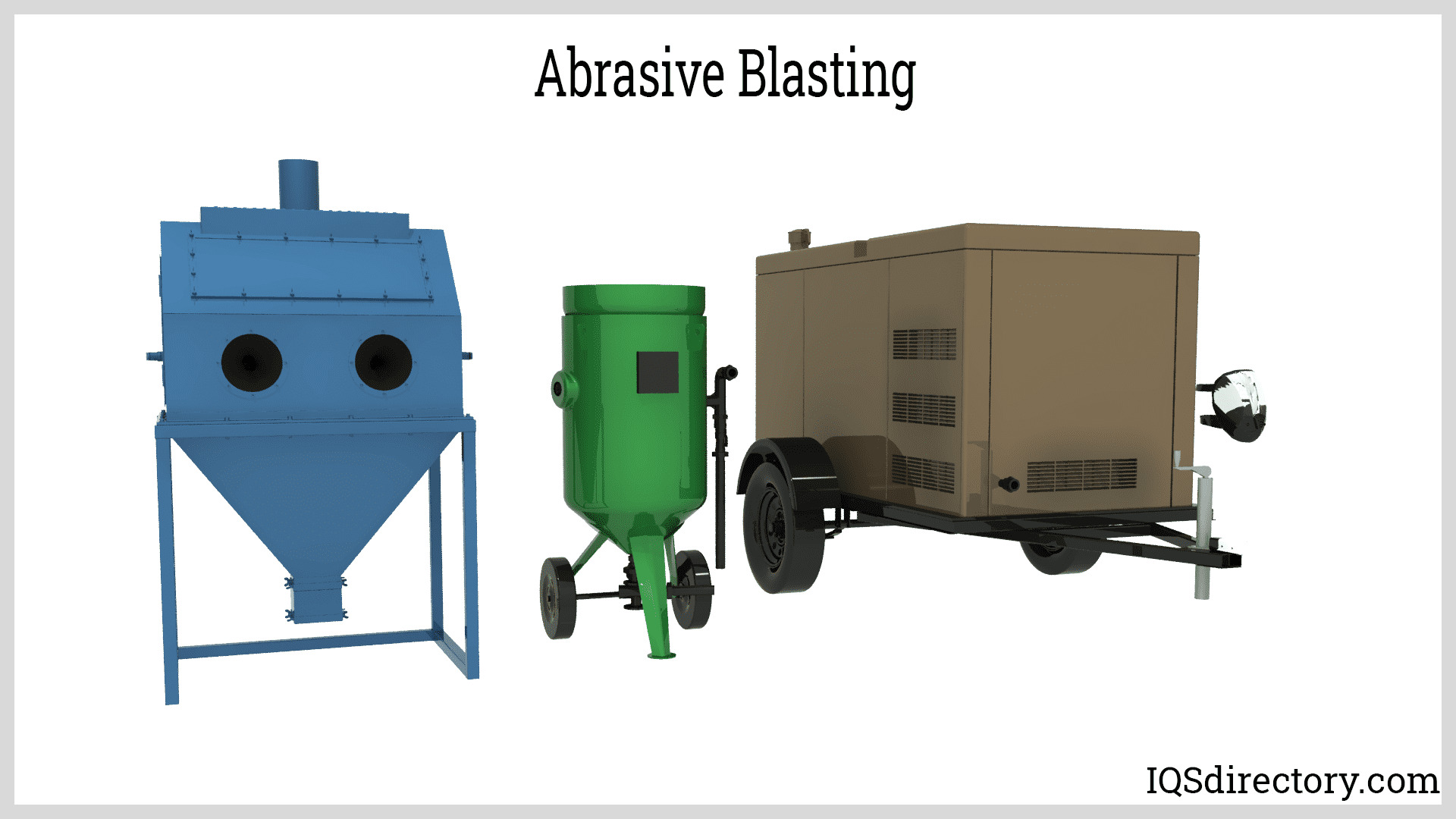
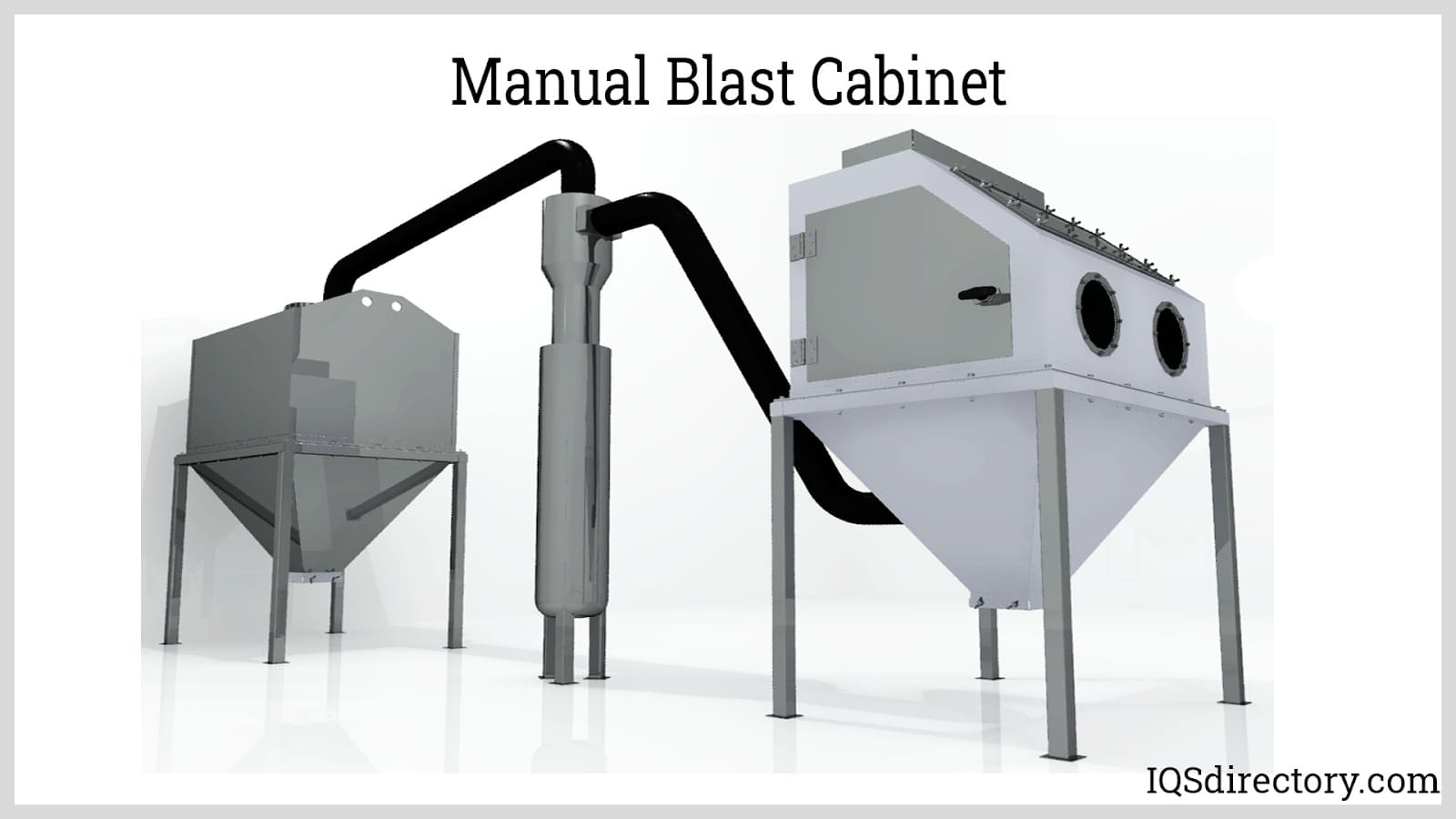
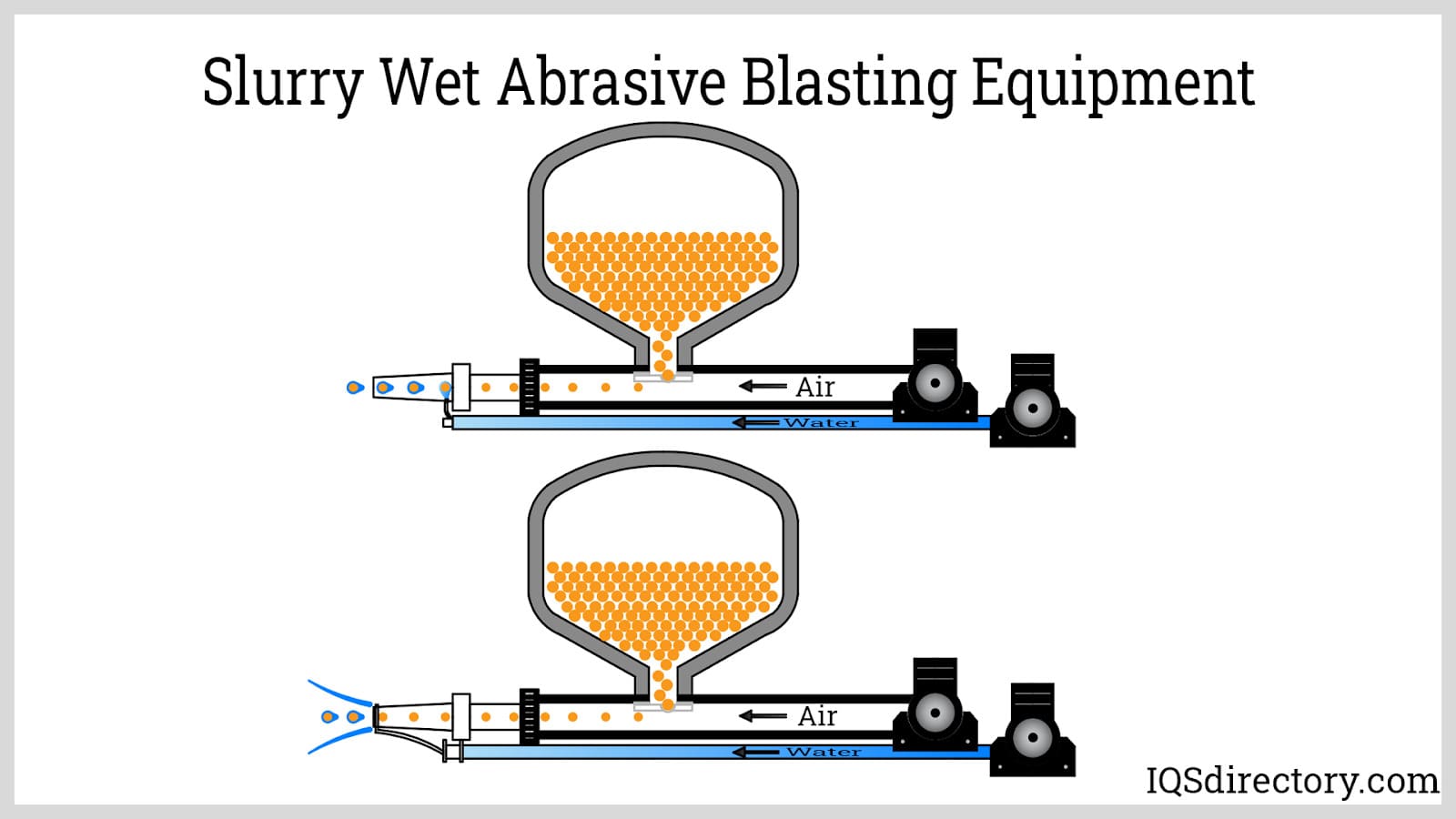
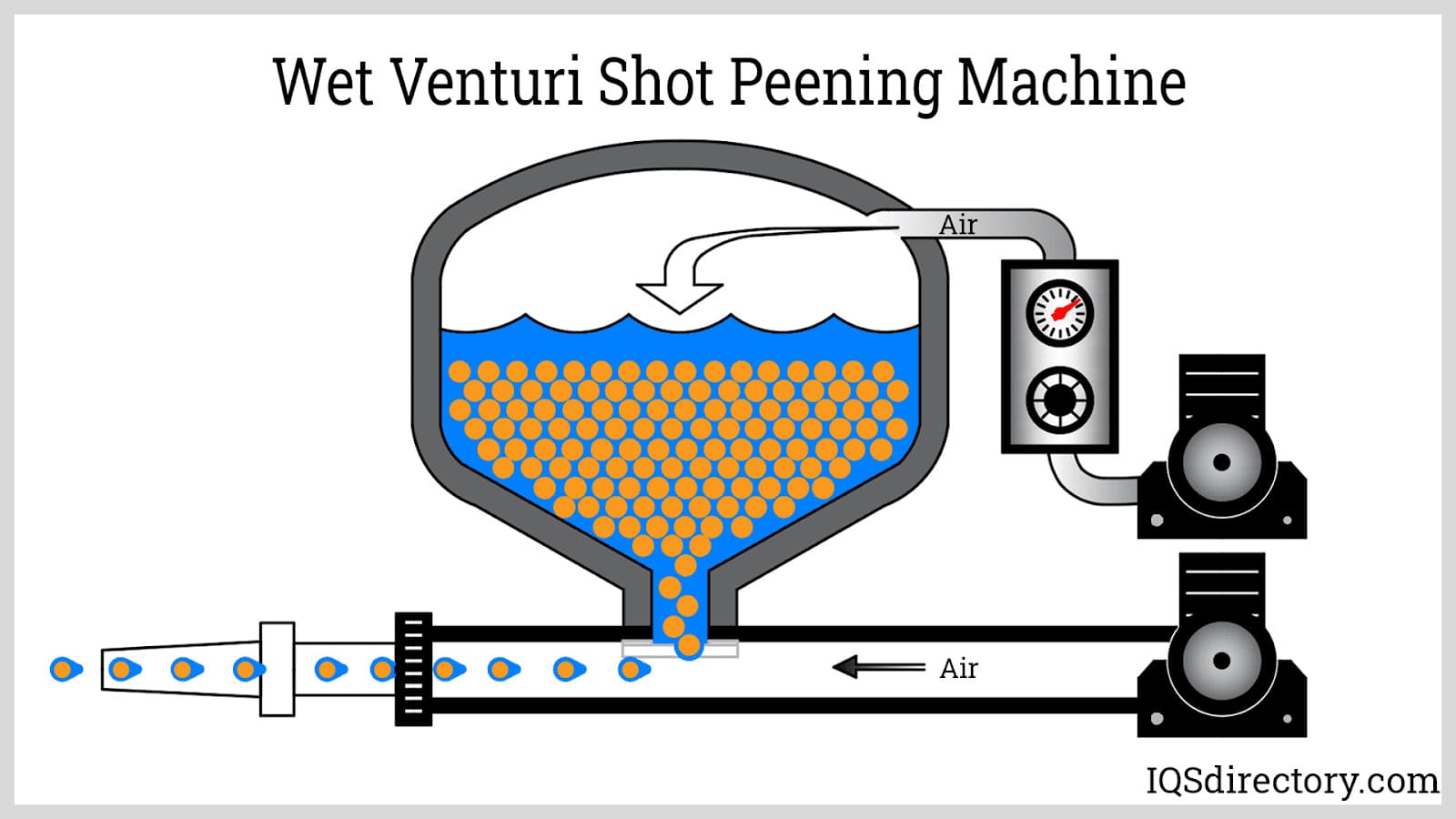
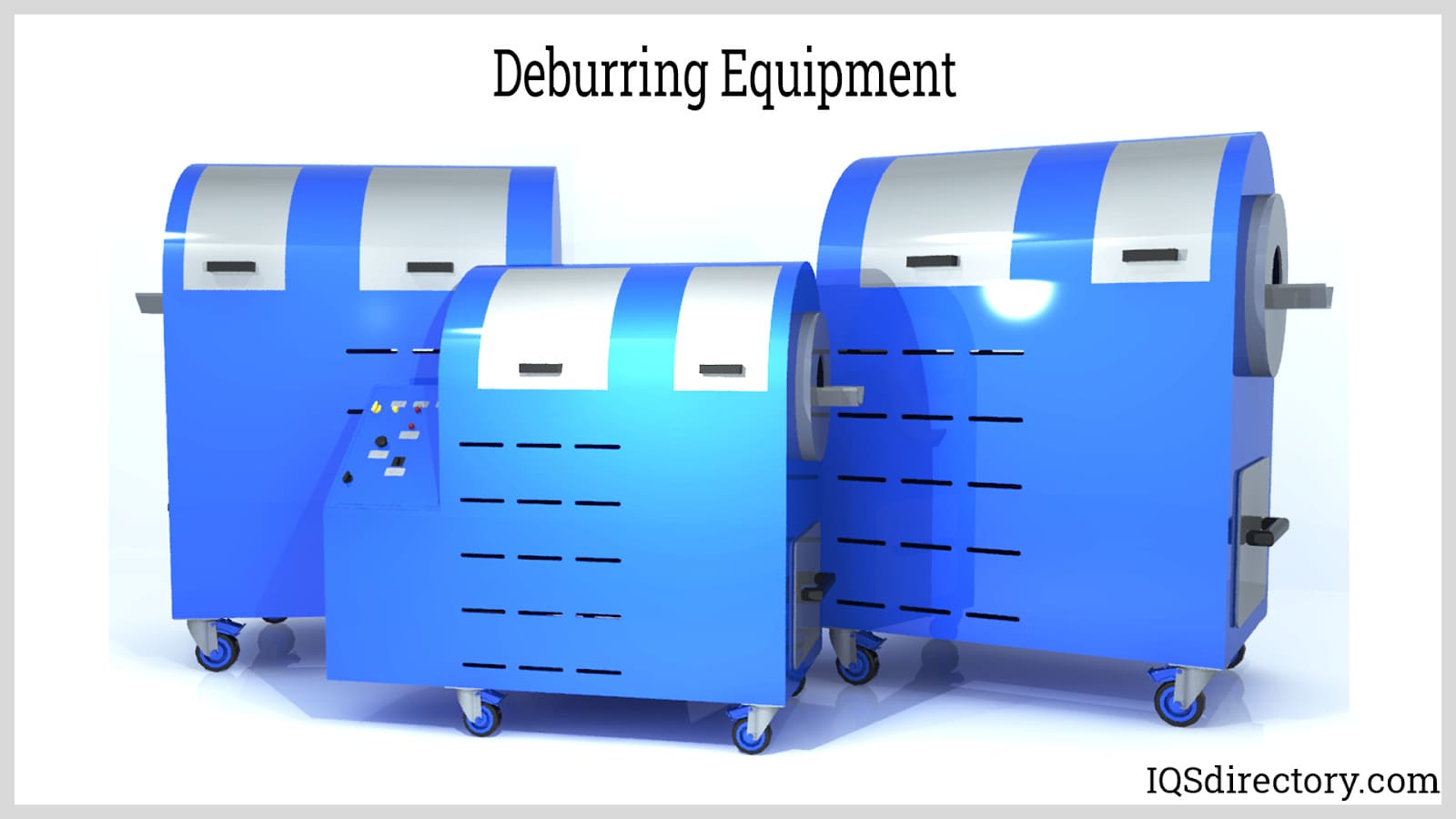
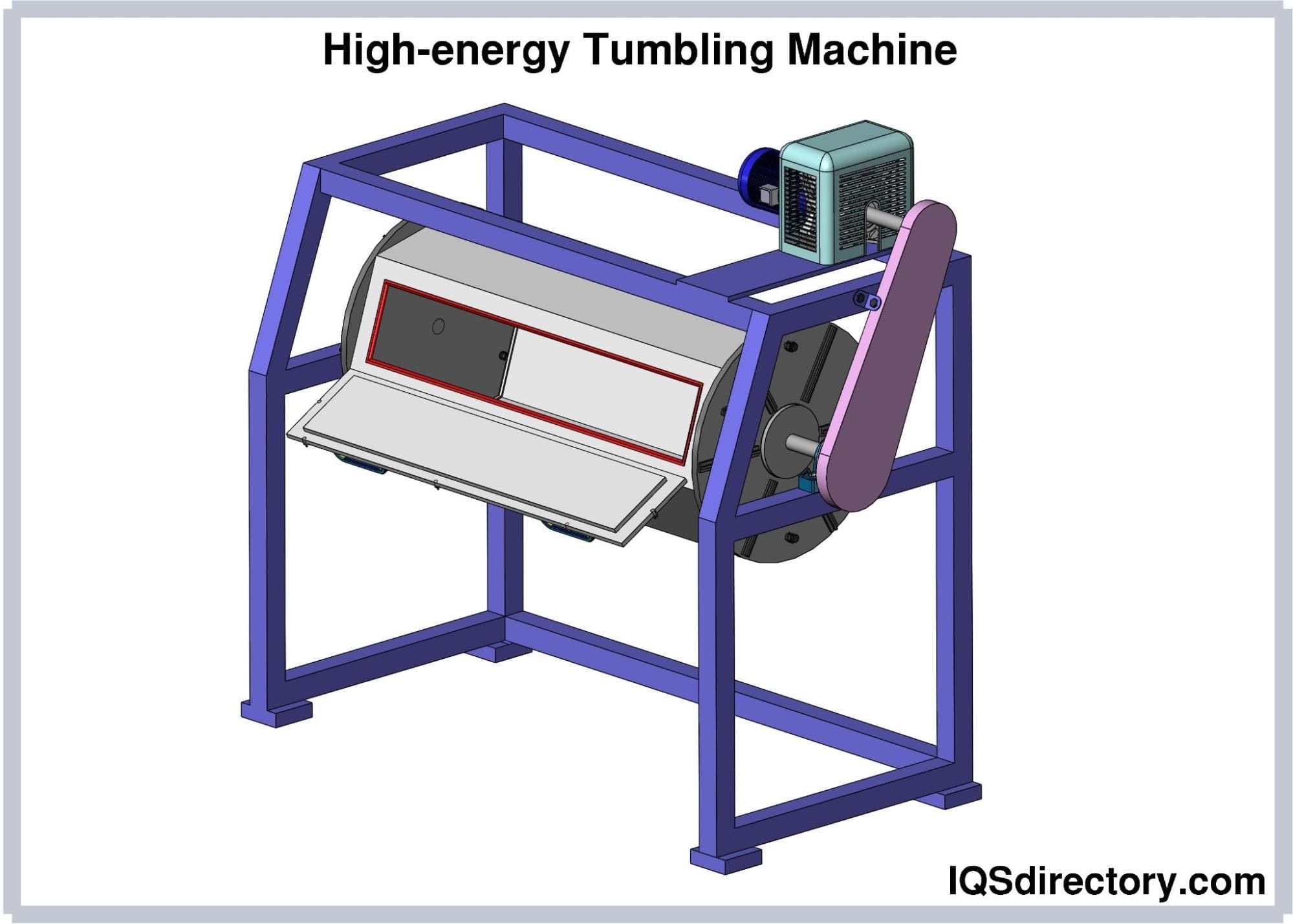
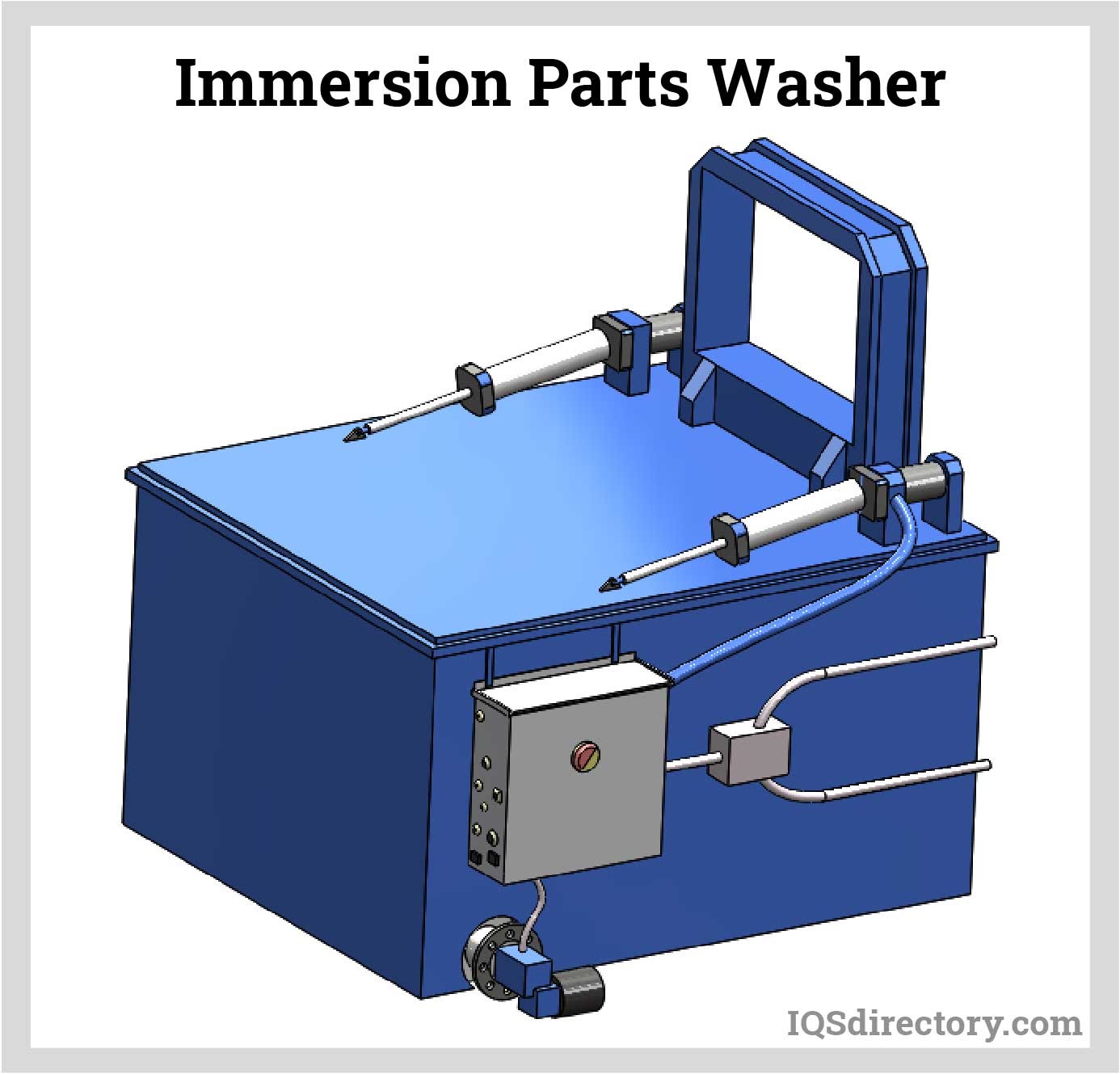
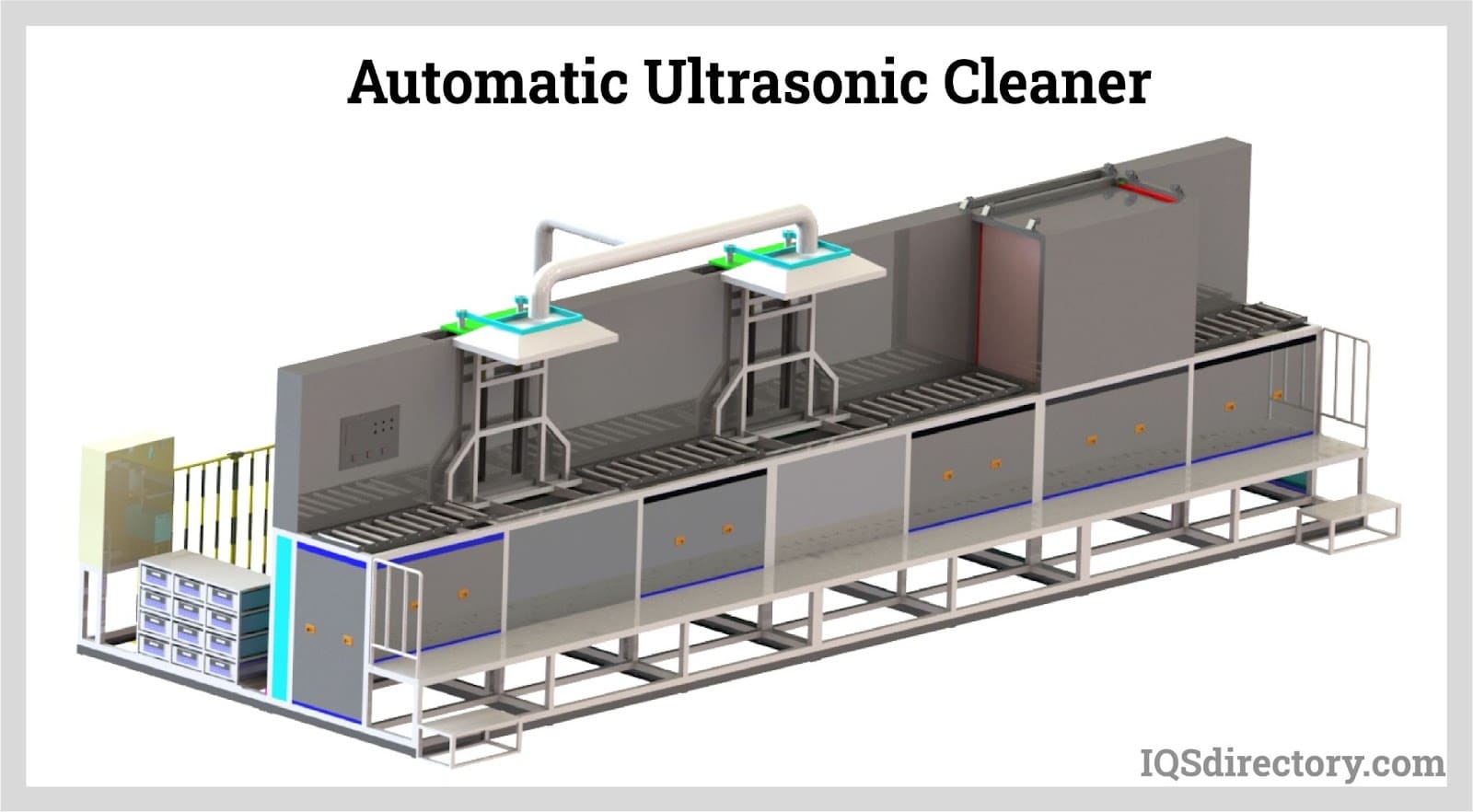
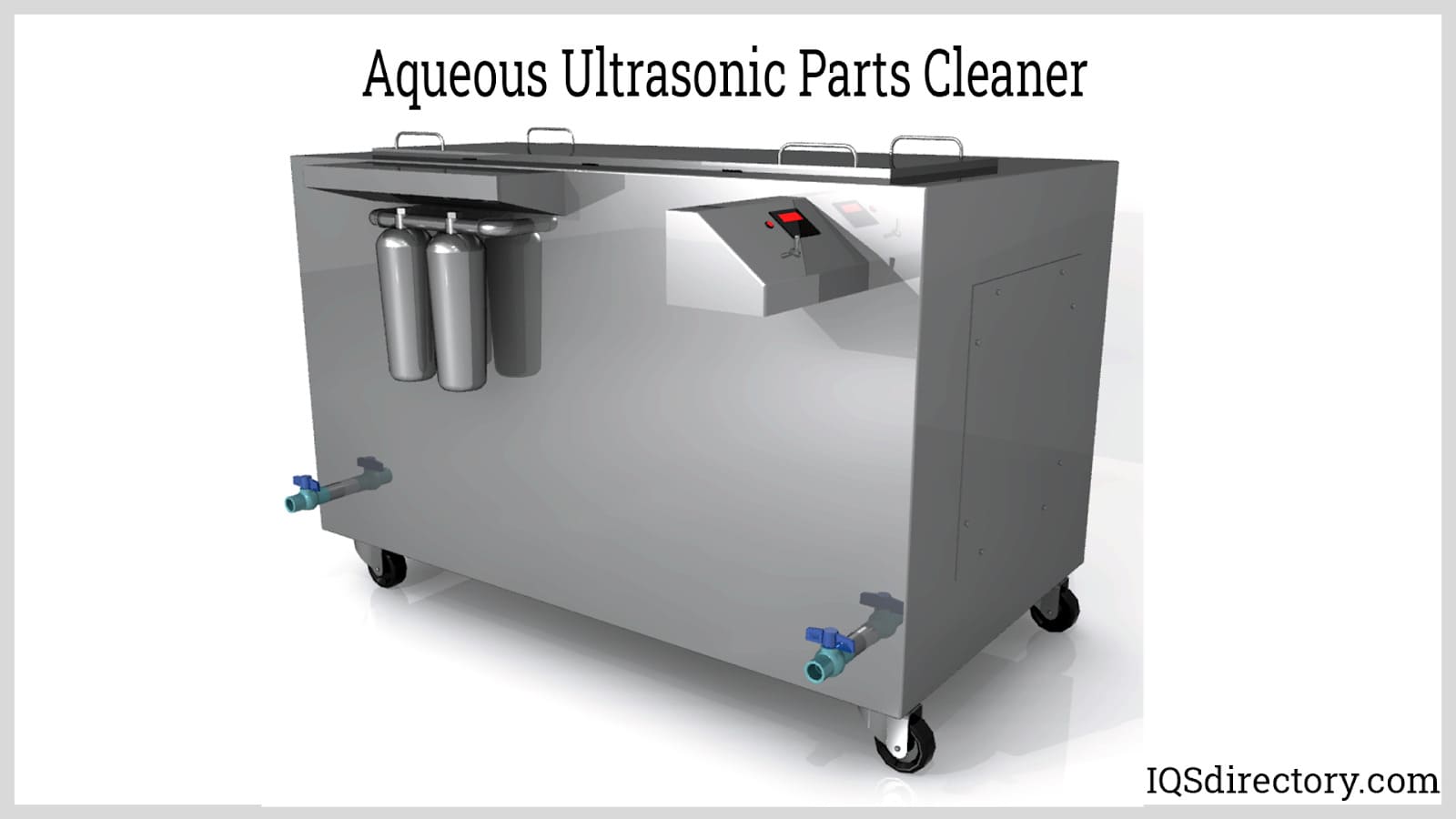
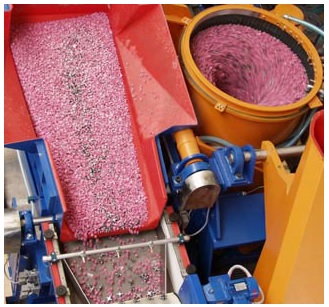 Deburring Machinery
Deburring Machinery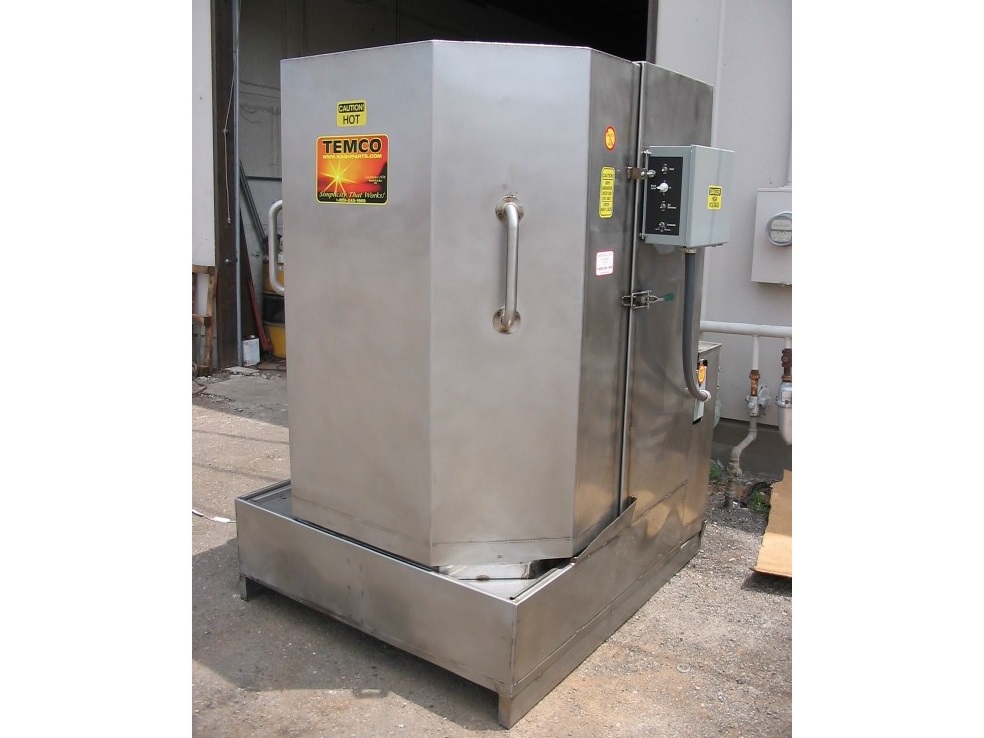 Industrial Parts Washers
Industrial Parts Washers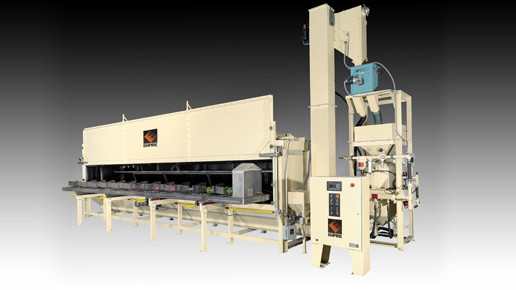 Sandblast Equipment
Sandblast Equipment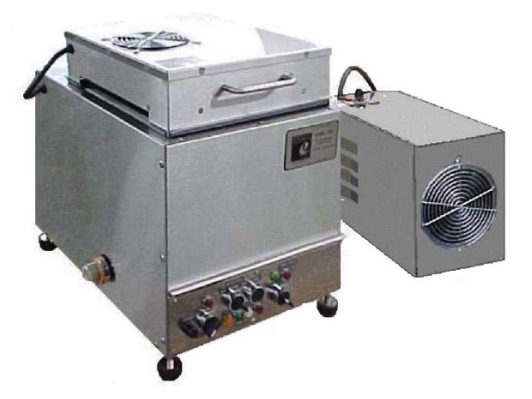 Ultrasonic Cleaners
Ultrasonic Cleaners Castings & Forgings
Castings & Forgings Bulk Material Handling
Bulk Material Handling Electrical & Electronic Components
Electrical & Electronic Components Flow Instrumentation
Flow Instrumentation Hardware
Hardware Material Handling Equipment
Material Handling Equipment Metal Cutting Services
Metal Cutting Services Metal Forming Services
Metal Forming Services Metal Suppliers
Metal Suppliers Motion Control Products
Motion Control Products Plant & Facility Equipment
Plant & Facility Equipment Plant & Facility Supplies
Plant & Facility Supplies Plastic Molding Processes
Plastic Molding Processes Pumps & Valves
Pumps & Valves Recycling Equipment
Recycling Equipment Rubber Products & Services
Rubber Products & Services